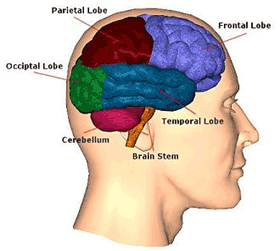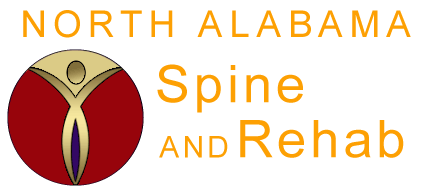Services
Traumatic Brain Injuries (TBI)
 Traumatic Brain Injuries (TBI) are a leading cause of death and disability in the United States, and car collisions are one of the leading causes of TBIs. 50,000 people die annually from TBIs, while 230,000 people are hospitalized and survive, and an estimated 80,000-90,000 people experience the onset of long-term disability as a result — currently, over 5.3 million people are living with disabilities resulting from a TBI. And, as you will learn later, many TBIs are not initially diagnosed and do not result in hospitalizations, so there are actually many more TBIs than those included in these statistics.
Traumatic Brain Injuries (TBI) are a leading cause of death and disability in the United States, and car collisions are one of the leading causes of TBIs. 50,000 people die annually from TBIs, while 230,000 people are hospitalized and survive, and an estimated 80,000-90,000 people experience the onset of long-term disability as a result — currently, over 5.3 million people are living with disabilities resulting from a TBI. And, as you will learn later, many TBIs are not initially diagnosed and do not result in hospitalizations, so there are actually many more TBIs than those included in these statistics.
What Exactly is a Traumatic Brain Injury (TBI)?
Traumatic brain injury is an insult to the brain, not of a degenerative or congenital nature but caused by an external physical force, that may produce a diminished or altered state of consciousness, which results in an impairment of cognitive abilities or physical functioning. It can also result in the disturbance of behavioral or emotional functioning. These impairments may be either temporary or permanent and cause partial or total functional disability or psychosocial maladjustment.
As the name suggests, and as this definition states, a TBI is an injury to the brain that results from an external force, or trauma, to the head. In other words, it’s a head injury that causes damage to the brain. The “external force” can be a direct blow to the head such as hitting the floor in a fall accident or striking the steering wheel in a car crash.
Even though the skull is not penetrated or fractured, the force can cause the brain to be injured in a number of ways. Or, the “external force” can be a rapid acceleration and deceleration of the head that shakes or rotates the brain. Examples of this are whiplash in a car collision or Shaken Baby Syndrome. The “external force” damages the tissues and cells of the brain causing temporary or permanent impairment in the cognitive, emotional and physical abilities of an individual.
Most TBIs are Closed Head Injuries (CHI), where trauma to the head sets the brain in motion inside the skull. Depending upon the degree and direction of the forces applied, the brain can be damaged in many different ways. These include surface contusions of the brain from a coup-contre coup (an initial blow followed by a rebound against the opposite side of the skull) and twisting and stretching from rotational force which damage fine structures like axons. Let’s take a closer look at this second example.
Specialized brain cells called neurons do the processing work of the brain (such as thinking). Axons — long, hollow tubular structures that project from the neurons — form the “wiring” that links neuronal processing centers. External forces can cause Axons to be damaged by twisting or stretching, preventing the neurons from functioning properly. Diffuse Axonal Injury (DAI) occurs on the cellular level and is visible only under a microscope at an autopsy. It is widely diffused and typically leaves blood vessels and major structures intact. Therefore, these Diffuse Axonal Injuries (DAI) do not appear on CTs or MRIs. As a result, this type of subtle TBI is a very under-diagnosed and under-treated malady.
Obviously, not all TBIs are equally serious. They range from catastrophic to subtle. However, even subtle brain injuries can have significant, permanent, life-altering consequences for the patient.
What are the Common Symptoms of a Traumatic Brain Injury (TBI)?
Traumatic Brain Injury can be fatal. For survivors, TBI can cause any of a number of physical, cognitive and emotional symptoms. Of course, not every patient will have all of these symptoms, and some patients will have symptoms not listed here.
Physical Symptoms
However, common physical symptoms can include:
- seizures of all types
- muscle spasticity
- double vision, blurred vision or low vision, even blindness
- loss of smell or taste
- speech impairments such as slow or slurred speech
- headaches or migraines
- fatigue, increased need for sleep
- balance problems
Cognitive Symptoms
Cognitive symptoms can include:
- short-term memory loss, long-term memory loss
- slowed ability to process information
- trouble concentrating or paying attention for periods of time
- difficulty keeping up with a conversation, and other communication difficulties such as word finding problems
- spatial disorientation
- organizational problems and impaired judgment
- inability to do more than one thing at a time, and
- a lack of initiating activities, or once started, difficulty in completing tasks without reminder.
Emotional Symptoms
Emotional symptoms of a TBI can include:
- increased anxiety
- depression and mood swings
- impulsive behavior
- more easily agitated, and
- egocentric behaviors, difficulty seeing how behaviors can affect others.
Medical Evaluation is Critical
If you have any of these symptoms after a whiplash injury, especially if they persist for more than a few days, you should be evaluated to see if you have a Traumatic Brain Injury (TBI). While they experience the same symptoms as a normal adult, children and seniors present unique symptoms and diagnostic problems.



